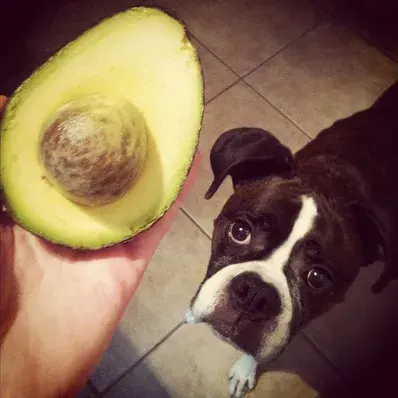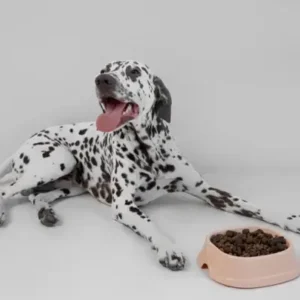Is Avocado Safe for Dogs?
Dogs can eat avocado flesh in small amounts, but understanding which parts of the avocado are safe and which are not is crucial to avoid potential health risks. While avocado is a nutrient-rich fruit, improper preparation or overfeeding can lead to serious health issues.
- Safe parts: The creamy, green flesh of the avocado contains low levels of persin, a fungicidal toxin that dogs can generally tolerate in small quantities.
- Unsafe parts:
- Skin: High in persin and difficult to digest.
- Pit: A choking hazard that can also cause intestinal blockages.
Can Dogs Eat Avocado in Moderation?
Yes, dogs can enjoy avocado as an occasional treat when it is prepared and served correctly. Avocado can provide some health benefits, such as healthy fats and vitamins, but only when given in the right amounts and the proper form.
To ensure your dog stays safe, follow these simple tips:
- Preparation Tips:
- Remove the skin and pit completely.
- Serve only a small piece of the flesh (e.g., one teaspoon for smaller dogs or one tablespoon for larger breeds).
- Avoid adding salt, spices, or oils.
- Monitor Your Dog: If it’s their first time eating avocado, watch for any signs of discomfort or allergic reactions.
Risks of Feeding Avocado to Dogs
While avocados can be safe in moderation, there are potential risks involved, regardless of the dog breed or size. It’s important to understand these risks so you can make informed decisions and prevent unnecessary harm to your furry friend.
- Persin Toxicity: While dogs are more resistant to persin than other animals, consuming large amounts can lead to stomach upset.
- Choking Hazard: The pit is large and can obstruct your dog’s airway.
- High-Fat Content: Avocado is calorie-dense, which can lead to weight gain or pancreatitis because of fatty acids if overfed.
Symptoms of Avocado Poisoning in Dogs
If your dog consumes a large amount of avocado or ingests the skin or pit, they may experience symptoms that require immediate attention. Knowing the warning signs can help you take quick action to protect your pet’s health.
- Vomiting or diarrhea.
- Lethargy or lack of appetite.
- Difficulty breathing (in severe cases).
If you notice any of these symptoms, contact your veterinarian immediately.
Safer Alternatives to Avocado for Dogs
If you’re unsure about feeding avocado, consider these dog-friendly fruits and veggies:
- Blueberries: Dogs can eat blueberries as a low-calorie snack packed with antioxidants, which help support their immune system and overall health.
- Carrots: Dogs can eat carrots, and their crunchy texture makes them excellent for promoting dental health while providing essential vitamins like beta-carotene.
- Apples: Dogs can eat apples as a sweet and refreshing treat. Just make sure to remove the seeds and core, as they can be harmful if ingested.
- Watermelon: Dogs can eat watermelon, which is hydrating and full of vitamins like A and C. Be sure to remove the seeds and rind to prevent digestive issues.
- Tomatoes: Dogs can eat ripe tomatoes in small amounts, as they are a safe source of vitamins and antioxidants. However, avoid feeding green or unripe tomatoes, as they contain solanine, a compound toxic to dogs.
These options are safer and provide similar nutritional benefits.








